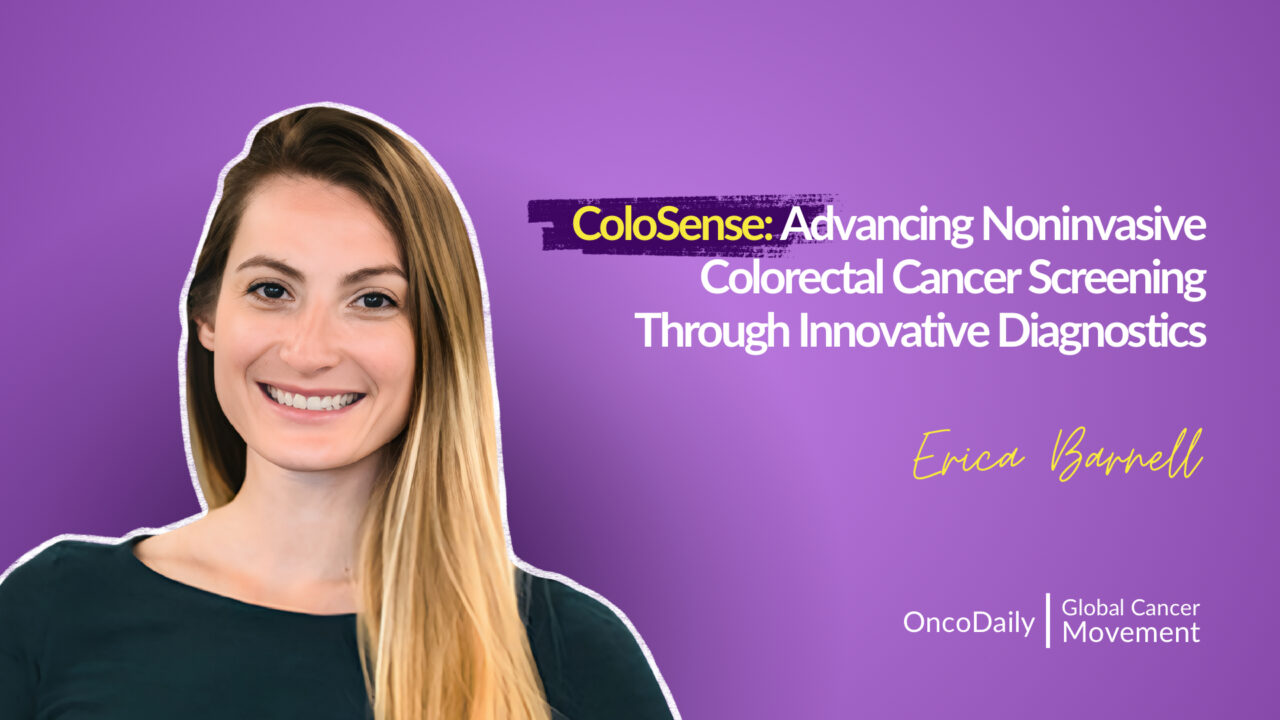In the inaugural event of the Global Cancer Movement, initiated by OncoDaily, Dr. Erica Barnell, Co-Founder and Chief Medical and Science Officer of Genoscopy, introduced the FDA-approved Colosense test, a groundbreaking advancement in colorectal cancer screening and prevention.
Erica Barnell, co-founder and Chief Medical and Science Officer at Genoscopy, presented the development and impact of Colosense, an FDA-approved colorectal cancer screening test. Barnell shared her journey, beginning with research in a microbiome lab at Washington University and later identifying the unmet need in gastrointestinal disease during her MD-PhD clinical rotations.
A pivotal moment occurred when she met a 52-year-old woman diagnosed with stage IV colorectal cancer, who had delayed a colonoscopy due to work constraints. This experience inspired Barnell to address the deadly disease, which is the second leading cause of cancer deaths in the U.S., with over 50,000 fatalities annually.
Colosense utilizes stool samples and RNA biomarkers to provide a highly sensitive, non-invasive diagnostic tool. RNA offers insights into dynamic and phenotypic changes in the gastrointestinal tract, capturing real-time abnormalities beyond specific mutations.
Following extensive clinical validation involving nearly 9,000 participants and 28 analytical studies, Colosense received FDA approval in May 2024. It is indicated for average-risk individuals aged 45 and older and detects both colorectal cancer and advanced adenomas. Barnell highlighted the importance of early detection, particularly of precancerous lesions, to prevent cancer development rather than simply diagnosing late-stage disease.
In the clinical validation study, Colosense demonstrated 94% sensitivity for colorectal cancer, 46% sensitivity for advanced adenomas, and 88% specificity for no colonoscopy findings. The test showed notable efficacy in the 45–49 age group, achieving 100% sensitivity for colorectal cancer and comparable sensitivity for advanced adenomas to older age groups. These results, published in JAMA in October 2023, position Colosense as a leader among non-invasive screening methods.
Barnell underscored the advantages of RNA-based biomarkers, particularly for younger patients where methylation-based tests like Cologuard and SHIELD exhibit declining sensitivity. Colosense maintains consistent accuracy across age groups, aligning with the USPSTF’s decision to lower the screening age to 45. Further, Colosense demonstrated superior clinical outcomes in a cost-effectiveness study published in the Annals of Internal Medicine, reducing colorectal cancer cases and deaths more effectively than other triennial screening methods.
Recognizing gaps in patient navigation, Genoscopy developed Colosense 360, a comprehensive support system to assist patients from test completion to scheduling follow-up colonoscopies after positive results. Services include prescription assistance, kit delivery, and logistical and insurance support. This approach ensures patients overcome barriers to timely diagnosis and treatment.
In conclusion, Barnell reiterated Colosense’s role in revolutionizing colorectal cancer screening. Scheduled for commercial launch with LabCorp in early 2025, Colosense is a highly sensitive tool that addresses rising incidence rates in younger populations and prioritizes early detection and prevention. Barnell encouraged physicians to explore Colosense via LabCorp and emphasized its alignment with providing holistic patient care.


